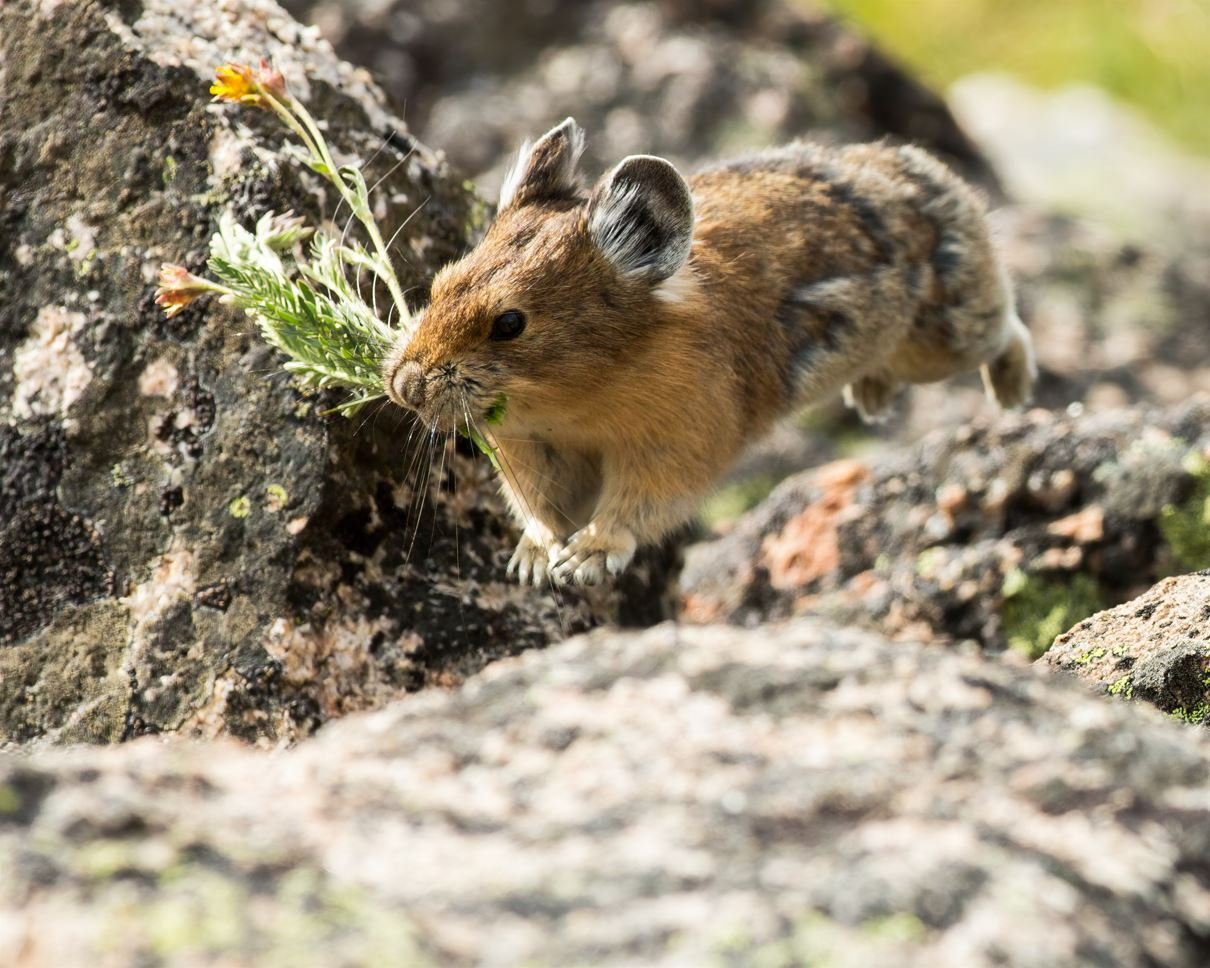Sampling a pika’s pantry: Temporal shifts in nutritional quality and winter preservation of American pika food caches
Varner, J., Z. J. Carnes-Douglas, E. Monk, L. M. Benedict, A. Whipple, M. D. Dearing, S. B., L. Griswold, and C. Ray. 2023. Sampling a pika's pantry: Temporal shifts in nutritional quality and winter preservation of American pika food caches. Ecosphere 14:e4494 . Available at https://doi.org/10.1002/ecs2.4494.
Abstract
Climate change is increasing temperature, decreasing precipitation, and increasing atmospheric CO2 concentrations in many ecosystems. As atmospheric carbon rises, plants may increase carbon-based defenses, such as phenolics, thereby potentially affecting food quality, foraging habits, and habitat suitability for mammalian herbivores. In alpine habitats, the American pika (Ochotona princeps) is a model species for studying effects of changing plant chemistry on mammals. To survive between growing seasons, pikas cache “haypiles” of plants rich in phenolics. Although they are toxic to pikas, phenolic compounds facilitate retention of plant biomass and nutrition during storage, and they degrade over time. Alpine avens (Geum rossii, Rosales: Rosaceae) is a high-phenolic plant species that comprises up to 75% of pika haypiles in Colorado. Here, we tested the hypothesis that contemporary climate change has affected the nutritional value of alpine avens to pikas in the last 30 years. Specifically, we compared phenolic activity, nutritional quality, and overwinter preservation of plants collected at Niwot Ridge, Colorado (USA), in 1992 to those collected between 2010 and 2018, spanning nearly three decades of climate change. Phenolic activity increased in alpine avens since 1992, while fiber and nitrogen content decreased. Importantly, overwinter preservation of plant biomass also increased, particularly on windblown slopes without long-lasting snow cover. Previous studies indicate that pikas at this site still depend on alpine avens for their winter food caches. Higher phenolic content in alpine avens could therefore enhance the preservation of haypiles over winter; however, if pikas must further delay consuming these plants to avoid toxicity or invest extra energy in detoxification, then the nutritional gains from enhanced preservation may not be beneficial. This study provides important insights into how climate-driven changes in plant chemistry will affect mammalian herbivores in the future.

